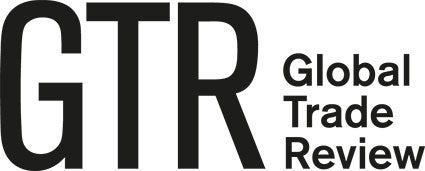Smaller businesses in the UK have become increasingly reluctant to export goods and services over the past decade, new research has found, prompting calls for greater support from both banks and government bodies.
A report published this month by the British Business Bank (BBB) says exports by SMEs accounted for just 32% of the UK’s overall exports in 2018, down from more than 50% in 2008 and 2009.
Produced in partnership with the government’s Departments of Business, Energy and Industrial Strategy (BEIS) and International Trade (DIT), as well as credit agency UK Export Finance (UKEF), the report quizzes over a thousand smaller firms on whether a lack of access to export finance is fuelling that decline.
However, it finds that most SMEs do not believe they lack access to export finance specifically. Instead they report difficulties in gaining financial support from banks more generally, and bemoan a lack of support in handling the risks that come with targeting new markets.
“The evidence shows that supporting SMEs to establish and grow is more important than providing them with better access to finance specifically to support their exports,” the report says. “SMEs are reluctant to take on additional external finance, even if it means accepting a slower growth rate.
“Yet growth is the key to exporting: exporting SMEs tend to have higher revenues and a longer history than non-exporters. Supporting SMEs to grow therefore appears to be the best way of growing SME exports.”
The report follows ambitious UK government plans to increase the share of national GDP that is derived from exports from 30% to 35%, as set out in 2018 by then-prime minister Theresa May.
To meet that target it says authorities “will need to pay special attention to the constraints faced by SMEs, which make up 99% of all registered businesses in the UK, 60% of employment, and 52% of turnover”.
Access to finance
The BBB, a government-owned business development bank, says its findings cast doubt on the “common assumption” that a lack of access to finance is the main constraint to exporting. In terms of taking on export financing in particular, the appetite among SMEs was found to be low.
Part of that is attributed to a lack of awareness. Fewer than half of survey respondents were aware of products designed to increase cash flow or mitigate foreign currency risks, while only 51% knew of services that mitigate the risk of non-payment. The proportion of firms actually using those services was below 5%.
More significant, though, is that 39% of SMEs say they have taken on external finance of some kind but just 8% did so in order to support exporting activities. Survey respondents say they typically borrow “to support general business activity and investment”, with few believing that exporting requires a different approach to financing.
A quarter of firms surveyed that already export products feel they “lack the time or the resources to sell domestically, let alone internationally”, and that figure rises to nearly half for businesses that plan to export but have not yet started to do so.
“These results imply that core financing, which supports SMEs to invest and grow their capacity, is the biggest requirement for businesses which plan to export,” the report says.
For many businesses, that core financing is in short supply. Smaller firms have long complained about the difficulty of obtaining funding from the traditional banking sector, generally on the grounds that lending to SMEs is considered relatively high-risk and low-reward.
“It’s been hard enough for small businesses to get hold of any finance internally, just to survive, let alone to think of doing something more extraordinary like exporting,” says Valeria Mizuno-Turner, co-founder and managing director of Northamptonshire-based Incredible Bakery Company.
“The high street banks don’t like small businesses,” she tells GTR. “It’s a very hard exercise to get any investment to come our way.”
Carl Hunter, CEO of Coltraco Ultrasonics, suggests part of that reluctance may have arisen from the cost of greater due diligence and the requirement for higher liquidity reserve requirements established since 2008’s global financial crisis.
Those changes may be “inhibiting the banks’ inclination to lend”, he says, adding: “Perhaps the banks are challenged to justify the average level of loan that’s at stake in regards to the return that they will make from SMEs.” As a result, initiatives from UKEF – described by Hunter as “an extraordinarily well-led agency by its exceptional leadership team” – are essential but cannot solve the entire problem.
“UKEF obviously cannot force a bank to make export finance available to its clients, and the banks don’t always want to do it to SMEs, perhaps because they consider the values are too small,” he says to GTR. “The fundamental vulnerability on export finance for SMEs is the ease by which they can access it. UKEF plays a vital leadership role but new products for export finance need to be created by lenders too.”
To see the full article, click here.

